Maximizing Your Fitness Goals with the Right Diet
Fitness is an important part of leading a healthy lifestyle, and the right diet can make a big difference in your success. Eating the right foods can provide you with the energy you need to push yourself during your workouts, as well as the essential vitamins and minerals needed to support your body during physical activity. In this blog post, we’ll be looking at some of the best ways to maximize your fitness goals through proper nutrition.
What to Eat Before a Workout
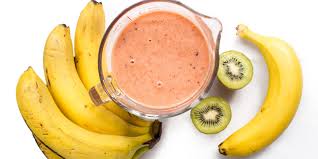
If you’re serious about fitness, it’s important to know that what you eat before a workout can have a significant impact on your performance. Eating the right foods will not only provide you with the energy you need to power through your workout, but it can also help improve your endurance and overall fitness levels.
Carbohydrates are an excellent source of energy and should be included in your pre-workout meal. Foods like oatmeal, whole grain bread, and fruit are great options. You’ll also want to include a small amount of protein to help prevent muscle breakdown during your workout. Consider having a hard-boiled egg, Greek yogurt, or a protein shake.
It’s important to remember that you don’t want to eat too much before your workout, as it can cause discomfort or indigestion. Stick to small, nutrient-dense meals that are easy to digest. Try eating your pre-workout meal at least 30 minutes before exercising to allow enough time for digestion.
If you’re short on time or prefer not to eat before your workout, a small snack can still provide the energy you need. Consider having a banana or an apple with a tablespoon of almond butter.
In summary, fueling your body with the right foods before a workout is essential for optimal fitness. Be sure to include carbohydrates and protein in your pre-workout meal, eat small nutrient-dense meals, and avoid eating too close to your workout time. With the right nutrition, you’ll be able to energize your fitness routine and reach your goals faster.
What to Eat After a Workout
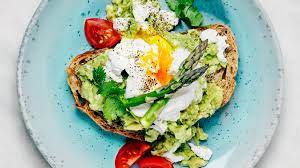
Eating after a workout is just as important as eating before one. When you exercise, your body burns calories and depletes energy reserves, so it’s important to refuel it with the right foods. Eating after a workout can help restore your energy levels, repair muscle tissues, and boost your overall recovery.
So, what should you eat after a workout? Here are some options:
- Protein-rich foods: Eating foods high in protein can help repair and build muscle tissues, which is essential after a workout. Some good options include chicken, eggs, Greek yogurt, and fish.
- Carbohydrates: Your body uses carbohydrates as its main source of energy during exercise, so it’s important to replenish them after a workout. Good options include sweet potatoes, brown rice, and whole-grain bread.
- Fruits and vegetables: These foods are rich in vitamins, minerals, and antioxidants that can help your body recover from a workout. Plus, they can help keep you feeling full and satisfied.
- Water: It’s important to stay hydrated after a workout, so make sure to drink plenty of water throughout the day.
Overall, eating after a workout is crucial for optimal recovery and results. Aim to eat a meal or snack within 30 minutes to an hour after exercising to help your body refuel and recover.
The Benefits of a Protein Shake
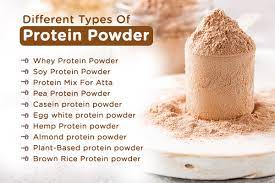
Protein shakes have become a staple in many people’s fitness routines, and for good reason. These shakes can be a quick and easy way to increase your protein intake, which can help build and repair muscle tissue after a workout. But protein shakes also come with other benefits, including:
- Convenience: Protein shakes can be a quick and easy way to get protein into your diet without having to cook or prepare a meal.
- Faster Recovery: Drinking a protein shake after a workout can help speed up the recovery process, as it provides your body with the amino acids it needs to repair and rebuild muscle tissue.
- Weight Loss: Protein shakes can help you feel fuller for longer, which can help reduce your overall calorie intake and aid in weight loss.
- Muscle Building: Protein is essential for building and repairing muscle tissue, so incorporating a protein shake into your diet can help you build muscle more effectively.
- Improved Immune System: Protein is also important for immune function, so consuming protein shakes can help support your immune system and overall health.
When choosing a protein shake, be sure to read the label and look for one that is high in protein and low in added sugars. You can also try making your own protein shakes at home using protein powder, fruit, and other healthy ingredients. Just be sure to talk to your doctor or a registered dietitian before making any significant changes to your diet.
Meal Planning for Optimal Nutrition
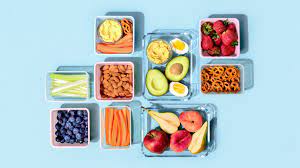
As the saying goes, “failing to plan is planning to fail.” When it comes to your fitness goals, meal planning is crucial to ensure that you are getting the proper nutrition your body needs. It not only saves you time and money, but it also helps you stay on track with your diet and makes healthy eating easier.
Start by setting a goal for your nutrition plan. Determine how many meals you need to eat per day and the amount of calories you need to consume to meet your fitness goals. From there, you can create a meal plan that includes nutrient-dense foods such as fruits, vegetables, whole grains, and lean protein sources.
When planning your meals, make sure to include a variety of food groups. This will not only provide you with a range of nutrients but also prevent boredom with your meals. A colorful plate with a mix of fruits and vegetables is not only visually appealing but also full of vitamins, minerals, and antioxidants that can boost your health and energy levels.
Additionally, don’t forget to add healthy snacks to your meal plan. These will help you maintain your energy levels throughout the day and prevent you from reaching for unhealthy snacks that are high in calories and sugar. Snacks such as nuts, seeds, and fruit are a great option.
Another helpful tip is to batch cook your meals in advance. This means cooking larger portions of your meals and storing them in containers in the fridge or freezer. This way, you can quickly heat up your meals when you are short on time and don’t have to worry about cooking each day.
Lastly, remember to stay hydrated. Drinking enough water is important for overall health and can aid in weight loss by keeping you full and preventing overeating. Make sure to carry a water bottle with you throughout the day to ensure you are getting enough fluids.
Foods to Avoid When Trying to Get in Shape
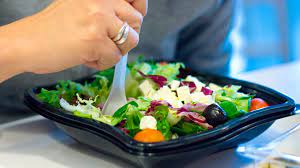
If you’re trying to get in shape and maximize your fitness goals, you’ll need to pay attention to the foods you eat. Certain foods can sabotage your progress, and it’s important to avoid them if you want to achieve your fitness goals. Here are some foods you should steer clear of:
- Processed Foods: Processed foods are often loaded with added sugars, unhealthy fats, and sodium, which can contribute to weight gain, high blood pressure, and other health issues. Instead, opt for whole, natural foods like fruits, vegetables, and whole grains.
- Sugary Drinks: Sugary drinks like soda, sports drinks, and fruit juices can add hundreds of calories to your diet without providing any nutritional value. Stick to water, unsweetened tea, or black coffee instead.
- Fried Foods: Fried foods are high in calories, unhealthy fats, and sodium, and can contribute to weight gain and other health issues. Instead, choose grilled, baked, or broiled options.
- White Bread and Pasta: White bread and pasta are made with refined flour, which can spike your blood sugar and leave you feeling hungry again soon after eating. Choose whole-grain options instead.
- High-Fat Meats: Meats like bacon, sausage, and fatty cuts of beef can be high in calories and unhealthy fats. Instead, choose lean protein sources like chicken, turkey, and fish.
By avoiding these foods and focusing on whole, natural foods, you can give your body the nutrients it needs to perform at its best and achieve your fitness goals.
